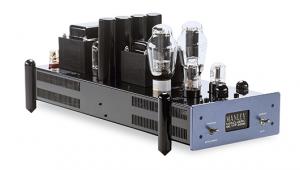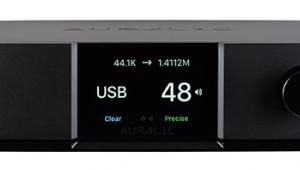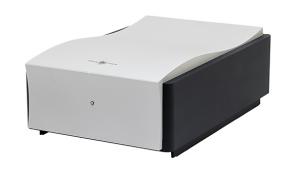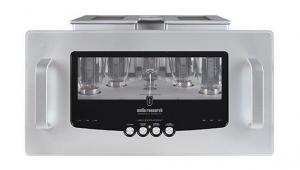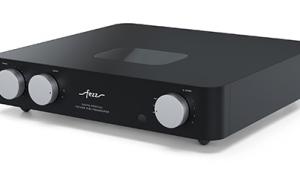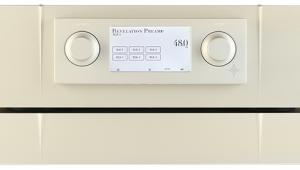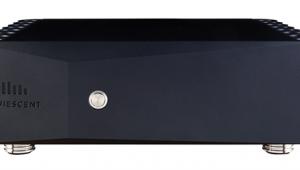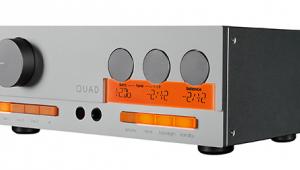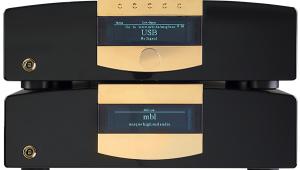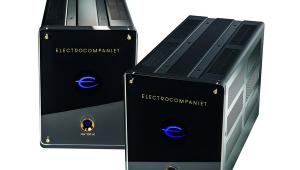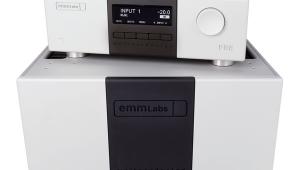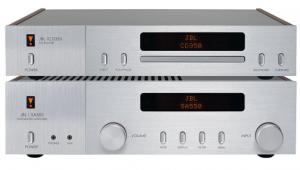Rotel Michi M8 Mono Power Ampiifier Page 2
![]() Cooking On Gas
Cooking On Gas
Set up in editor PM's spacious listening room and connected to the HFN reference Bowers & Wilkins 800 D3 speakers [HFN Oct '16], with which the Michi amps have an obvious synergy given the close ties between the two brands (B&W is Rotel's international distributor), the P5 preamp and M8 monoblocks had been cooking for a day or two by the time I started serious listening. Yet the power amps were running barely warm to the touch – nothing to trouble the cooling systems there.
From the off, there were recognisable traits from the S5 to be heard in the way the M8s delivered the music, but also something very different. For while the stereo amp is in no way lacking in power and dynamics, the monoblocks describe things on an altogether grander scale, and demonstrate all the levels in between silence and maximum level in much greater detail, and with far finer gradation. The result is not just an amplification system that sounds (understandably) much bigger and less restrained, but also one delivering more speed, more information and an even more natural view of the music.
 And it only takes a few tracks to realise that the M8 power amp has better control of the music than I noted with the S5, all underpinned with a much greater sense of clout. This gives the whole enterprise an even more assured and mature feel.
And it only takes a few tracks to realise that the M8 power amp has better control of the music than I noted with the S5, all underpinned with a much greater sense of clout. This gives the whole enterprise an even more assured and mature feel.
Guts 'N' Glory
To take just one example, play Big Audio Dynamite's 'A Party' from the band's 1985 album This Is... [CBS 462999 2] and, while this track is some way from being an exemplary recording, the P5 preamp and M8 monoblocks crash it out with no shortage of drive, a powerful low-end and remarkably taut, gutsy percussion. There's obviously more power on hand here, and the M8s deploy it adroitly to serve the music well – even at lower levels the sound is just bigger, and has greater impact.
That's also the case with the brass-driven jazz of 'Blowin' The Blues Away' from Kyle Eastwood's Time Pieces set [Jazz Village JV 570034], which pelts from the speakers with full force, the twin brass leads sparkling and clearly shifting a lot of air, while the combination of Eastwood's bass and the drums and piano form a tight, agile rhythm section, despite no shortage of weight in the bass. Notable, too, is the stereo imaging and sense of soundstage depth here, combining with the dynamics to give a really vibrant, 'live' impression.
Thrilling Dynamics
Like the S5, the M8s still have a hint of lushness in the bass, which is especially apparent with large scale orchestral recordings such as the Staatskapelle Berlin/Barenboim recording of Elgar's First Symphony [Decca 478 9353, 96kHz/24-bit]. Yet, arguably, this warmth suits well the romantic sweep of the piece and the fine-detailed performance. The M8s, driving the big B&W speakers, present the music in a stately yet fluid manner, with great scale to the orchestral forces and thrilling dynamics when the score requires, thanks to the very apparent clout of the amplifiers. Instrumental timbres are honest and vibrant, there's excellent space in the sound despite that weight in the bass, and the overall impression is of total ease with no sense of the amps working hard.
But it's not just with classical big bands that the M8s shine – play 'Candy's Room' from The Boss's Darkness On The Edge Of Town [Columbia; 96kHz/24-bit download], and you'll want to go easy with the spoken intro section. When the band hits, it crashes in with amazing force, the amps unleashing a real hit of power and then maintaining that dynamic, clean drive without any sense of hardening up.
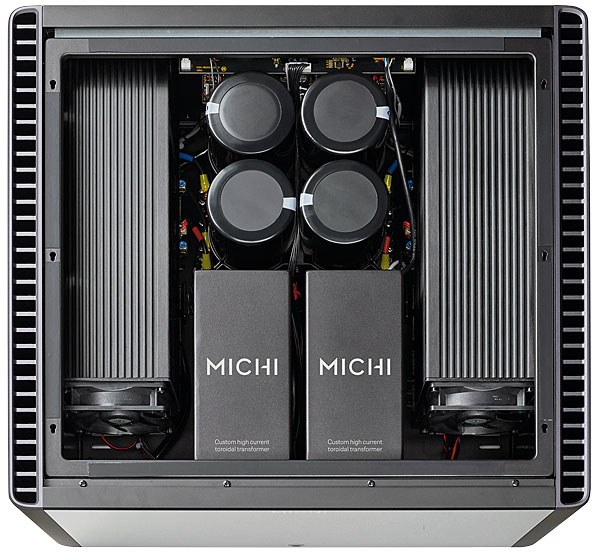
Whether with powering guitars and pounding bass and drums, or delicate solo and small-ensemble music, these amps are entirely in their element, as evident when falling back on an old audiophile favourite, the Antonio Forcione/Sabina Sciubba version of 'Why Can't We Live Together' [Meet Me In London; Naim cd021].
The sheer focus of the sound is breathtaking, from the openness of Sciubba's voice to each strike on string or tap on the body of Forcione's guitar, and the subtle additions of percussion. It has probably been demonstrated to death, but in the hands of the Michi P5 preamp and M8 monoblocks it still has the wherewithal to tingle and show what made it so special.
Hi-Fi News Verdict
The Michi P5/S5 was a triumphant return for Rotel's high-end sub-brand, but using the preamp with the more powerful M8 monoblocks elevates the performance further, to striking effect. These chic black power amps combine fuss-free style and operation with an impact as deft as it can be devastating, allied to a natural musical flow. Big and hefty, the M8s are nothing short of a serious bargain.




